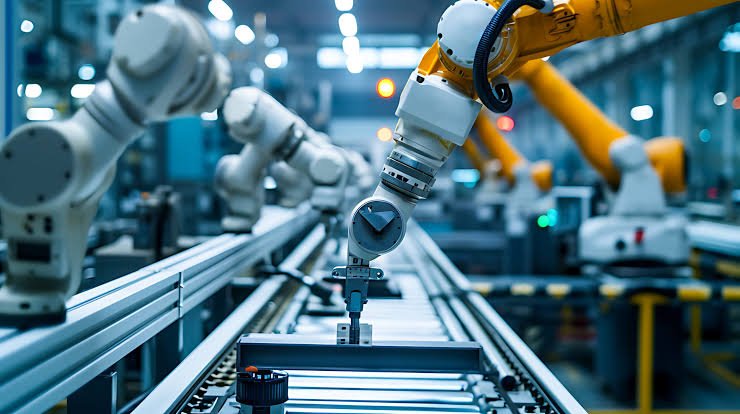The manufacturing of pacemakers—a critical component in modern healthcare—demands the highest standards of precision and reliability. Given the intricate nature of these life-saving devices, any deviation in manufacturing processes can have serious implications for patient safety. To meet these stringent requirements, the medical device industry, particularly in the realm of pacemaker production, is increasingly turning to industrial automation. Among the technologies driving this shift, servo controllers play a crucial role in ensuring the precision and accuracy required in automated manufacturing systems. This article delves into how industrial automation, especially through servo controllers, is transforming pacemaker manufacturing.
Importance of Automation in Pacemaker Manufacturing
Pacemakers are complex devices that require the integration of electronic, mechanical, and software components to regulate the heart’s rhythm. The process of assembling these components demands meticulous precision to ensure that the final product is reliable and effective. Industrial automation brings several key benefits to the manufacturing of pacemakers:
1. Enhanced Precision and Consistency
- Automated systems, equipped with advanced servo controllers, provide the high precision required for the intricate assembly of tiny electronic components and delicate wiring involved in pacemakers. This level of precision is crucial for ensuring the consistency and reliability of each unit produced.
2. Increased Production Efficiency
- Automation allows for continuous operation and more consistent production rates, which is essential to meet the increasing demand for these medical devices. Automated lines can operate 24/7 with minimal supervision, significantly boosting output and reducing production time.
3. Improved Quality Control
- Automated systems conduct rigorous testing and quality checks throughout the manufacturing process. Servo controllers play a vital role in these systems, ensuring that each movement and operation is performed correctly, thereby minimizing the risk of defects.
4. Enhanced Safety
- Automation minimizes human interaction with the assembly processes, which not only improves safety and reduces human error but also ensures a sterile environment necessary for manufacturing medical devices like pacemakers.
Applications of Industrial Automation in Pacemaker Manufacturing
1. Component Placement and Assembly
- Pacemaker manufacturing involves the precise placement of small electronic components onto circuit boards. Robots, driven by servo controllers, are used for this task, ensuring components are accurately placed and securely soldered. The precision controlled by servo controllers is crucial for maintaining the integrity and functionality of the pacemakers.
2. Battery Integration
- The integration of long-lasting batteries into pacemakers is a critical step that requires precise handling and placement. Automated systems use servo controllers to manipulate and install batteries within the pacemaker casing, ensuring a secure fit and reliable connection.
3. Encapsulation and Sealing
- Once the internal components are assembled, pacemakers must be encapsulated and hermetically sealed to prevent body fluids from entering and damaging the device. Automation technologies handle these processes, with servo controllers managing the sealing equipment to apply consistent pressure and heat, ensuring a durable and safe seal.
4. Testing and Calibration
- Each pacemaker is subjected to a series of functional tests to ensure it operates as intended. Automated testing rigs, controlled by servo controllers, simulate heart conditions to test the pacemaker’s responsiveness and reliability. These controllers adjust the test parameters in real time to match the required testing protocols.
The Role of Servo Controllers in Enhancing Automation
Servo controllers like the DKC06.3-040-7-FW for instance, are essential in the automation of pacemaker manufacturing due to their ability to provide precise control over the movement of machinery and robotic systems. These devices precisely manage the operation of servo motors that drive the assembly robots, testing equipment, and other automated machinery used in the manufacturing process.
- Precision Control: Servo controllers allow for exact adjustments in machinery, crucial for tasks that require high accuracy such as the wiring of electronic components or the application of sealants.
- Flexibility: These controllers can be quickly reprogrammed and adjusted to accommodate different models of pacemakers or to adapt to new technological advancements in pacemaker design.
- Efficiency: By optimizing the movement of assembly robots and other automated machinery, servo controllers reduce cycle times and enhance the overall efficiency of the production process.
Challenges in Automating Pacemaker Manufacturing
Despite the advantages, automating pacemaker manufacturing presents several challenges:
1. High Initial Investment
- The cost of setting up automated production lines with advanced technologies like servo controllers can be significant. However, the long-term benefits of increased efficiency, precision, and product reliability often justify this initial expenditure.
2. Technical Complexity
- Developing and maintaining sophisticated automated systems requires a high level of technical expertise. Manufacturers must invest in skilled personnel to operate, maintain, and troubleshoot these systems.
3. Integration with Existing Processes
- Integrating new automation technologies with existing manufacturing protocols can be complex and requires careful planning to ensure seamless operation and compliance with medical device regulations.
Conclusion
Industrial automation, facilitated by the use of advanced servo controllers, is playing a transformative role in pacemaker manufacturing. By enhancing precision, efficiency, and safety, automation helps manufacturers meet the rigorous demands of medical device production. As technology continues to evolve, embracing these innovations will be crucial for maintaining competitiveness in the medical device industry and ensuring the production of high-quality, reliable pacemakers. This integration not only supports current manufacturing needs but also paves the way for future advancements in pacemaker technology.

